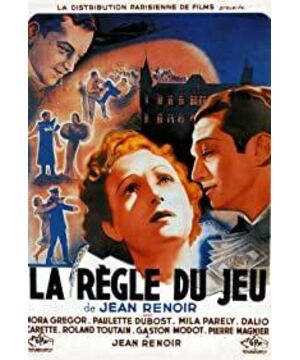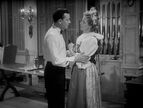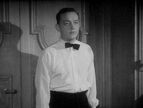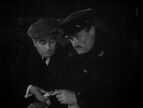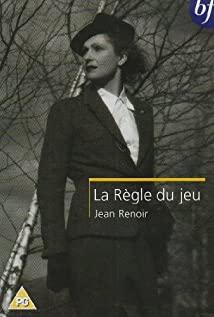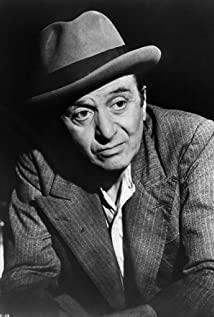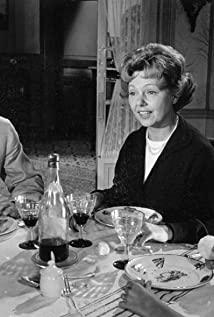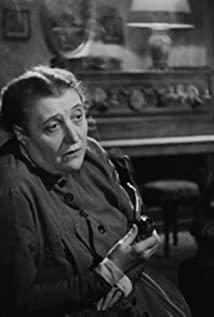Most of the themes explored by "Rules of the Game" are considered to be "copying" of the "Last Supper" of the upper class society in the 1920s and 1930s. In comparison, Renoir also seems to follow a set of principles in the plot setting- - Pay attention to the contrast between the surrounding environment and inner emotions. The enthusiastic reporting of reporters, the shouting of onlookers at the scene, the reception of my friend Okodive, and even the roar of the plane, this deliberately created cheerful atmosphere is to create a strong contrast with the pessimism of pilot Julie after his appearance. The life of Robert and his wife Christine appears to be happy and happy under the packaging of rich material conditions, but this actor-like relationship is broken by the director with the sentence "Love in high society is the exchange of two fantasies and the contact of two bodies", Then, naked and almost without transition, the relationship between Robert and his lover is presented to the public. Julie's crash also happened in an almost unpredictable state of the audience's psychology, without too much emotional rendering, only a close-up of a sad expression, which has to be abrupt in the eyes of contemporary audiences, but the director's way of handling the plot has achieved A kind of "defamiliarization" effect, which from time to time frees the audience from the narrative and looks at the development of events rationally. In the process of handling the relationship between Occordive and Kristin, the director deliberately exaggerated a kind of close friendship. The audience can't imagine that Kristin will beg Occordive to elope with him at the end of the play. Another reason is that Occordive A fat, clumsy, unattractive man, at least not comparable to Julie and Robert. Robert's new recruit at the hunting grounds is one of the key characters in the play, and he has all kinds of vices that are incompatible with Robert and the maid Jesse's love for him, almost upside-down. All the characters set in the play hardly change before and after the narrative. Renoir is not talking about focusing on one character, but a group of people. Only the pilot Julie can be regarded as a special case. He is the only character who dares to look directly into his heart. .
A high-society gathering brings all the characters together for a tragic farce. From the perspective of the play, how to get Julie to join the party reasonably is a difficult problem. According to normal affairs, Robert obviously knows that Christine and Julie have a little ambiguous relationship, and Okodiff seems to have mediated the two sides. , but there is no action to substantially resolve this contradiction. In other words, the director does not even feel that there is any contradiction in this relationship in high society. At the party, when Jesse's husband finds out that the new housekeeper has an affair with Jesse, the undercurrent of the lower class is intertwined with the carnival between the upper class, although it seems to weaken the conflict emotionally, but this The contrast of these external forms is a conflict in itself, and the effect is even stronger. Julie's death was a masterful design and a shocking ending. When Jesse's husband shot, it seemed that everything was over, and all contradictions were resolved, because he helped this society that was comfortable with the status quo get rid of an outlier, even a deformed society. And he can only be counted as a gunman, the real murderer is everyone.
"The extreme sadness and the extreme joy are an expression." This extreme experience of mixed sadness and joy is exactly what the director hopes to bring to the audience. The coincidences, sharp turns and contrasts of the plot are the rules that cause this feeling, and also Renoir The playwriting rules for creating Rules of the Game.
View more about
The Rules of the Game reviews


